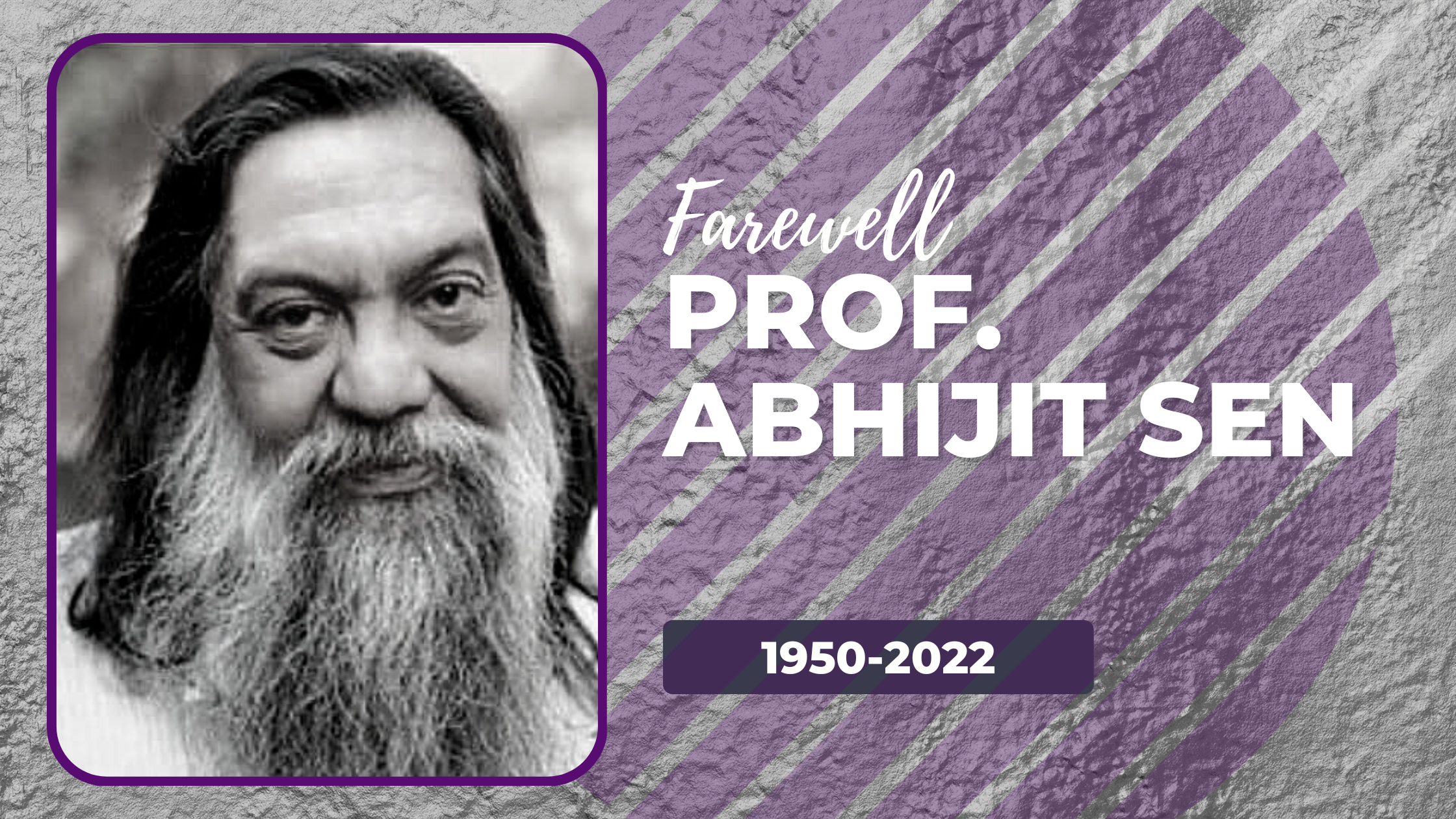Sri Lanka defaulted on its external debt for the first time in its postcolonial history…
Farewell Prof. Abhijit Sen An Obituary by Jawaharlal Nehru University Teachers' Association (JNUTA)
 Prof Abhijit Sen, who taught at the Centre for Economic Studies and Planning (CESP) for three decades between 1985-2015, passed away on August 29. He was 72.
Prof Abhijit Sen, who taught at the Centre for Economic Studies and Planning (CESP) for three decades between 1985-2015, passed away on August 29. He was 72.
He, along with other founding members of the Centre, played a key role in establishing CESP as one of the foremost Economics departments in the country. Prof. Krishna Bhardwaj, who started the Centre, visualised the Centre as one where theory met empirical research, and learnt from each other. If there ever was one person who could move between the two seamlessly and represent this vision, it was Prof Sen. He used to play with data in a childlike fashion even as he would place them in a solid theoretical structure. As a result of this back and forth between applied work and theory, Prof Sen enriched both economic theory and data analysis, especially in the area of agricultural economics.
Prof Sen finished his PhD at the University of Cambridge and taught at Sussex, Oxford, Cambridge and Essex before joining JNU. His PhD on the agrarian constraint to the Indian planning experience was published as a two-part article in the Cambridge Journal of Economics in 1981, which remains a classic in the field of agricultural economics in general and Indian agricultural development in particular.
As an economist, Prof Sen believed in changing the world too instead of just interpreting it. He served as the chairperson of Committee for Agricultural Cost and Prices (CACP) and as a member of the Planning Commission between 2004-2014. Linking the minimum support price (MSP) to the cost of cultivation in cash and in kind is one of the lasting contributions he made to the fixation of the MSP in this country. Similarly, the National Food Security Act of 2013 owes a lot to his dogged defence of a universal public distribution system, which resulted in provisioning of rice and wheat at a low price to more than one-third of the Indian population. Last but not the least, he played an instrumental role in legislation of the NREGA, the biggest employment guarantee programme in the world. To honour his lasting contribution to public service, he was awarded the Padma Bhushan in 2010.
Manik, as he was called by his friends, was one of a kind. An extremely bright mind, with his infectious humour, he was a maverick in many ways. Once a couple of small children on the JNU campus asked him ‘Nana, why do you have such a long beard? He replied, in his quintessential witty manner, that it was a bird’s nest and that if the kids watched it carefully one or two birds may just fly out! At the same time, Manik was fearless in his opinions and inherently opposed to any dogmatism. He was one of those teachers who could shift from teaching one compulsory course to another with an ease and competence that was difficult to match. He would absent-mindedly leave the classroom in the middle but then come back in the next class to apologise and by way of an apology give a brilliant lecture. He was known to have forgotten to prepare the question paper for the exams for his courses. Nevertheless, he would hardly ever miss the synopsis presentations by students at CESP, where his brilliance was in full display. His incisive comments both within his own area of expertise, and even more interestingly outside that, were so good that in quite a few instances, it helped change the course of PhD work in fundamental ways. Manik loved his data, Old Monk and his favourite Charms cigarettes of those days.
With Prof. Sen’s departure, the JNU community has lost one of its stalwarts. JNUTA extends its condolences to Prof Jayati Ghosh and their daughter Jahnavi for this irreparable loss.
(This article was originally published in jnuta.online on August 31, 2022)
